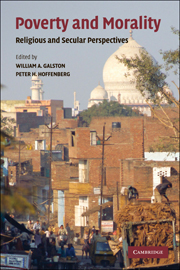108 results
Eric MacGilvray: Liberal Freedom: Pluralism, Polarization, and Politics. (Cambridge: Cambridge University Press, 2022. Pp. xvi, 221.)
-
- Journal:
- The Review of Politics / Volume 85 / Issue 4 / Fall 2023
- Published online by Cambridge University Press:
- 25 August 2023, pp. 581-583
-
- Article
- Export citation
APSA Presidential Task Force Report on New Partnerships
-
- Journal:
- PS: Political Science & Politics / Volume 53 / Issue 4 / October 2020
- Published online by Cambridge University Press:
- 16 October 2020, pp. 847-849
- Print publication:
- October 2020
-
- Article
-
- You have access
- HTML
- Export citation
14 - Liberalism, Nationalism, Pluralism: The Political Thought of Isaiah Berlin
- from Part IV - Berlin and Politics: Liberalism, Nationalism, and Pluralism
-
-
- Book:
- The Cambridge Companion to Isaiah Berlin
- Published online:
- 21 September 2018
- Print publication:
- 04 October 2018, pp 250-262
-
- Chapter
- Export citation
WHAT “REALISTIC UTOPIAS” ARE — AND AREN’T
-
- Journal:
- Social Philosophy and Policy / Volume 33 / Issue 1-2 / Fall 2016
- Published online by Cambridge University Press:
- 07 December 2016, pp. 235-251
- Print publication:
- Fall 2016
-
- Article
- Export citation
Chapter 2 - Liberalism and internal dissent
-
-
- Book:
- Dissent on Core Beliefs
- Published online:
- 05 May 2015
- Print publication:
- 23 April 2015, pp 19-34
-
- Chapter
- Export citation
Between Logic and Psychology: The Links between Value Pluralism and Liberal Theory
-
- Journal:
- The Review of Politics / Volume 75 / Issue 1 / Winter 2013
- Published online by Cambridge University Press:
- 29 January 2013, pp. 97-101
-
- Article
- Export citation
10 - Oakeshott's political theory: recapitulation and criticisms
- from Part II - Oakeshott on morality, society and politics
-
-
- Book:
- The Cambridge Companion to Oakeshott
- Published online:
- 28 September 2012
- Print publication:
- 07 June 2012, pp 222-244
-
- Chapter
- Export citation
10 - Moral pluralism and liberal democracy: Isaiah Berlin's heterodox liberalism
-
-
- Book:
- Political Philosophy in the Twentieth Century
- Published online:
- 05 June 2012
- Print publication:
- 29 August 2011, pp 154-169
-
- Chapter
- Export citation
Pluralist Constitutionalism
-
-
- Book:
- What Should Constitutions Do?
- Published online:
- 05 June 2012
- Print publication:
- 31 January 2011, pp 228-241
-
- Chapter
- Export citation
PLURALIST CONSTITUTIONALISM
-
- Journal:
- Social Philosophy and Policy / Volume 28 / Issue 1 / January 2011
- Published online by Cambridge University Press:
- 30 November 2010, pp. 228-241
- Print publication:
- January 2011
-
- Article
- Export citation
Index
-
- Book:
- Poverty and Morality
- Published online:
- 05 June 2012
- Print publication:
- 20 September 2010, pp 299-312
-
- Chapter
- Export citation

Poverty and Morality
- Religious and Secular Perspectives
-
- Published online:
- 05 June 2012
- Print publication:
- 20 September 2010
Contributors
-
- Book:
- Poverty and Morality
- Published online:
- 05 June 2012
- Print publication:
- 20 September 2010, pp xi-xiv
-
- Chapter
- Export citation
1 - Introduction
-
-
- Book:
- Poverty and Morality
- Published online:
- 05 June 2012
- Print publication:
- 20 September 2010, pp 1-14
-
- Chapter
- Export citation
Frontmatter
-
- Book:
- Poverty and Morality
- Published online:
- 05 June 2012
- Print publication:
- 20 September 2010, pp i-vii
-
- Chapter
- Export citation
Contents
-
- Book:
- Poverty and Morality
- Published online:
- 05 June 2012
- Print publication:
- 20 September 2010, pp ix-x
-
- Chapter
- Export citation
Select Bibliography
-
- Book:
- Poverty and Morality
- Published online:
- 05 June 2012
- Print publication:
- 20 September 2010, pp 295-298
-
- Chapter
- Export citation
Acknowledgments
-
- Book:
- Poverty and Morality
- Published online:
- 05 June 2012
- Print publication:
- 20 September 2010, pp xv-xvi
-
- Chapter
- Export citation
The obligations of Equality - Ronald Dworkin: Sovereign Virtue: The Theory and Practice of Equality. (Cambridge, MA: Harvard University Press, 2000. Pp. 511. $35.00.)
-
- Journal:
- The Review of Politics / Volume 63 / Issue 3 / Summer 2001
- Published online by Cambridge University Press:
- 05 August 2009, pp. 607-611
-
- Article
- Export citation
9 - Leo Strauss’s Qualified Embrace of Liberal Democracy
-
-
- Book:
- The Cambridge Companion to Leo Strauss
- Published online:
- 28 November 2009
- Print publication:
- 11 May 2009, pp 193-214
-
- Chapter
- Export citation



